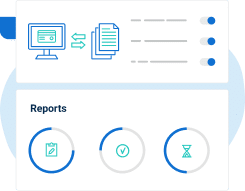If this is the first time you have come across the notion of internal auditor, you are probably puzzled – Why would I need another control? Who is going to pay for it? Who should I employ to do it? It is such a waste of time…
Well, it doesn’t have to be so bad – besides complying with ISO 27001 & BS 25999-2 standards, internal audits could be quite useful for your other business affairs (whether related to information security & business continuity or not).
The point with internal audits is that they should discover problems that would otherwise stay hidden and would therefore harm the business. Let’s be realistic – it is human to make mistakes, so it‘s impossible to have a system with no mistakes; it is however possible to have a system which improves itself and learns from its mistakes. Internal audits are a crucial part of such a system.
There are a few ways to perform internal audit:
a) Employ a full time internal auditor – this is suitable only for larger organizations who would have enough work for such a person (some types of organizations – e.g. banks – are obliged by law to employ such functions)
b) Employ part time internal auditors – this is the most common situation – the organizations use their own employees to perform internal audits alongside their regular job functions. One important thing to pay attention to: in order to avoid conflict of interest (the auditors cannot audit their own work), there should be at least two internal auditors so that one could audit the regular job of the other.
c) Employ internal auditor from outside of the organization – although this is not a person employed in the organization, it is still considered internal audit because the audit is performed by the organization itself, according to its own rules. Usually this is done by a person who is knowledgeable in this field (independent consultant etc.).
However, from my experience as an auditor, the sad truth is that most of the organizations perform internal audits just to satisfy the certification body. The result of such internal audits are a few non-conformities which do not get deep into the real problems of information security management system (ISMS) or business continuity management system (BCMS). This is a waste of time – if the companies have invested time of their internal auditors to perform such jobs, they should gain some benefits out of it.
But how then to approach internal audits in the right way – here are some thoughts:
- The management should view the internal audit as one of the best tools to improve the system, not only as a means to get certified.
- The internal auditor should be qualified – this means he/she must have experience in information security, information technology and auditing techniques. It does not mean that the auditor must be an expert in those fields.
- The internal audit should be performed in a positive way – the aim should be to improve your system, not to blame the employees for their mistakes.
On the positive side, as a certification auditor I did see some organizations performing internal audits in a right way. Although their employees did feel a little uncomfortable about someone checking their activities, very soon they saw the benefits of such approach – problems became transparent, and were resolved rather soon.
Learn how to perform an internal audit in this free ISO 27001 Internal Auditor Online Course.

 Dejan Kosutic
Dejan Kosutic 


